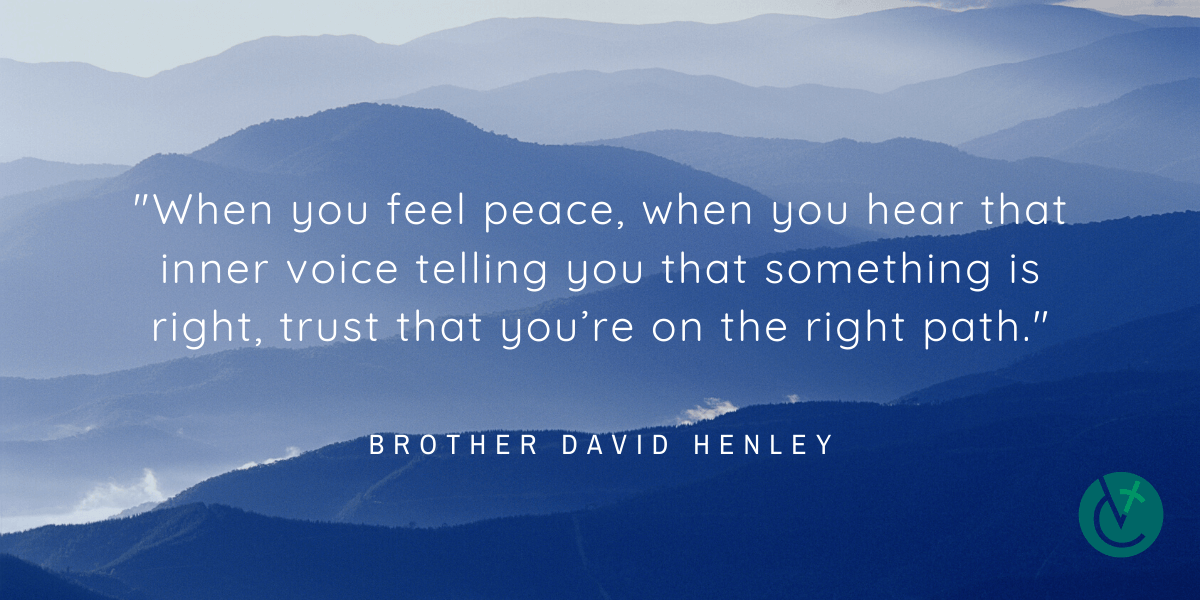
Discernment: Listening for God in the real world
“Samuel, Samuel!” the Lord calls, in one of the more famous stories of discernment in the Bible. After bothering his teacher, Eli, three times, the wise man realizes it is the Lord who is calling. “If you are called,” said Eli, “reply, ‘Speak, Lord, for your servant is listening.'”
The story reveals a lot about listening for God. When Samuel finally listens, the Lord begins a lifetime of revelation for Samuel.
Don’t we each wish for the same? How do we discern what God is asking of us? In real estate, we hear that location, location, location is key. For discernment, it’s prayer, prayer, prayer. But that prayer needs to be informed by experience — both in doing new things and by listening to those around us.
Our friends and family can see things that we can’t see in ourselves. We listen to our experience, then we pray, listening for God’s calling.
Discernment isn’t exactly about broccoli versus ice cream. But discernment can be an everyday practice about how we handle relationships and small, daily choices.
Do I go to church on Sunday? Is it a good choice to fudge it on this test or on that business decision? Is this the day to go easy on my children?
There are bigger stakes in discernment, too, as we all know. What job or profession is best for me? Does my inner disposition suggest I get married — to this person or another? Am I called to be a religious sister or brother, a priest? Am I open to having children?
In discernment, the first and most important thing we need to do is set aside time for prayer. “Speak, Lord, for your servant is listening,” as Samuel said. Find silence. We need to turn our questions over to God and tell God what our fears and desires are.
Will God’s voice be audible? I was hoping for that kind of thing as I discerned my own vocation to become a Glenmary brother — a burning bush, a voice from the sky, maybe even lightning to strike around me. But that didn’t happen. For me, it was in regular periods of silence that I was able to hear God calling.
God’s voice comes in other times in our lives, too. Maybe it could be in conversation with a friend, perhaps sharing insight into what I’m experiencing or what I’ve turned over to God for some type of answer. The insights of that person can be a tool for our own discernment.
Spending quiet time with scripture is also important. True, we’re not going to stop throughout the day and see what scripture says about each small action, but reflecting on scripture and listening closely during the liturgy can help orient our lives.
Prayer and action go hand in hand for discerning God’s will. Consider how the quiet, though active, times in our day — doing dishes, gardening, exercise routines — can be times of listening for God.
I tell people who come to Glenmary “Come and See” programs to listen closely. God doesn’t want you to suffer. Try things out, then pray about them. If the choice you see before you isn’t right for you, don’t do it.
But when you feel peace, when you hear that inner voice telling you that something is right, trust that you’re on the right path. That’s the fruit of discernment.
— Brother David Henley is vocations director for Glenmary Home Missioners, based in Cincinnati.
— Originally published in the Winter 2019 issue of Vermont Catholic magazine.

